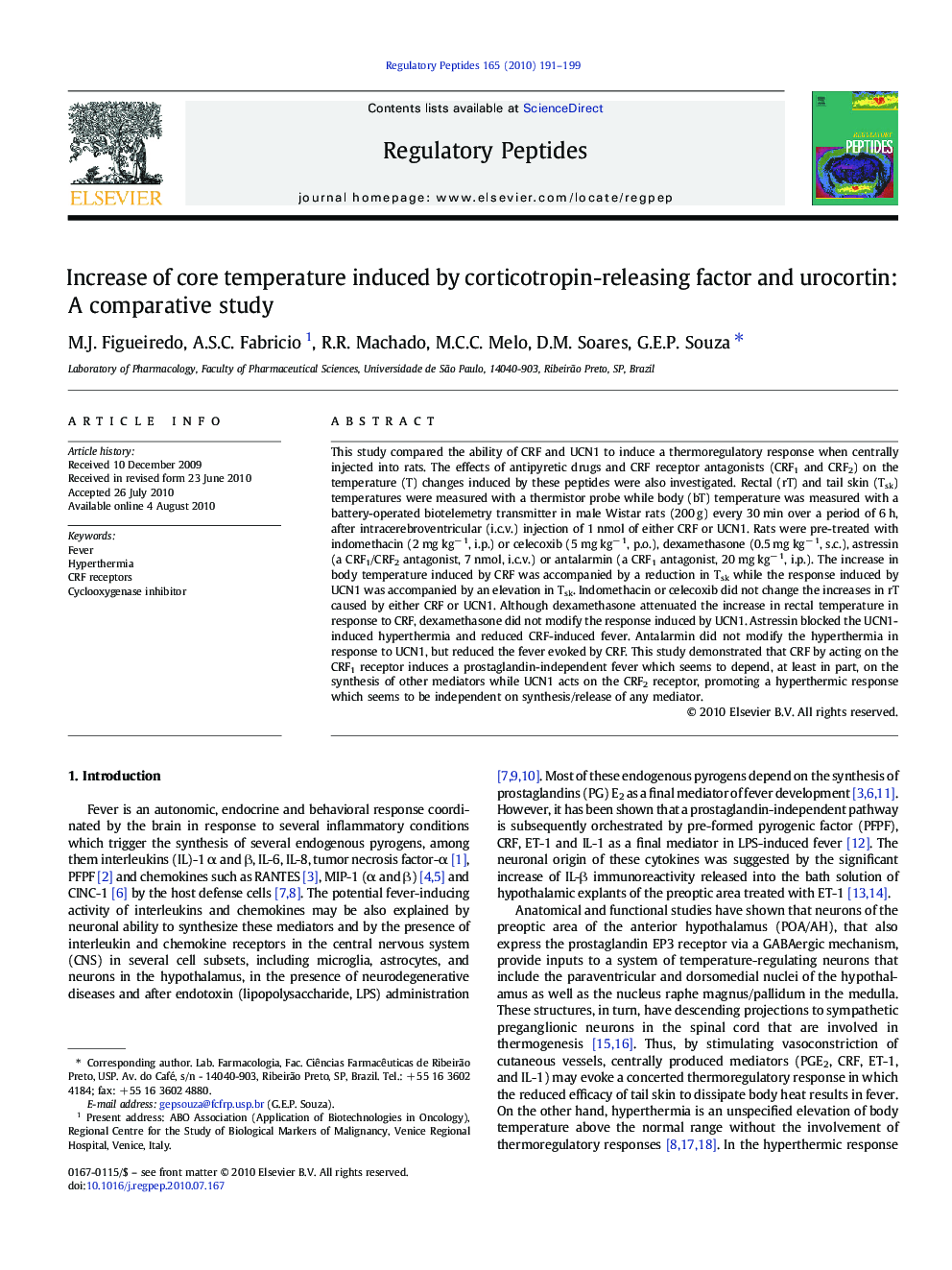| Article ID | Journal | Published Year | Pages | File Type |
|---|---|---|---|---|
| 2022676 | Regulatory Peptides | 2010 | 9 Pages |
This study compared the ability of CRF and UCN1 to induce a thermoregulatory response when centrally injected into rats. The effects of antipyretic drugs and CRF receptor antagonists (CRF1 and CRF2) on the temperature (T) changes induced by these peptides were also investigated. Rectal (rT) and tail skin (Tsk) temperatures were measured with a thermistor probe while body (bT) temperature was measured with a battery-operated biotelemetry transmitter in male Wistar rats (200 g) every 30 min over a period of 6 h, after intracerebroventricular (i.c.v.) injection of 1 nmol of either CRF or UCN1. Rats were pre-treated with indomethacin (2 mg kg− 1, i.p.) or celecoxib (5 mg kg− 1, p.o.), dexamethasone (0.5 mg kg− 1, s.c.), astressin (a CRF1/CRF2 antagonist, 7 nmol, i.c.v.) or antalarmin (a CRF1 antagonist, 20 mg kg− 1, i.p.). The increase in body temperature induced by CRF was accompanied by a reduction in Tsk while the response induced by UCN1 was accompanied by an elevation in Tsk. Indomethacin or celecoxib did not change the increases in rT caused by either CRF or UCN1. Although dexamethasone attenuated the increase in rectal temperature in response to CRF, dexamethasone did not modify the response induced by UCN1. Astressin blocked the UCN1-induced hyperthermia and reduced CRF-induced fever. Antalarmin did not modify the hyperthermia in response to UCN1, but reduced the fever evoked by CRF. This study demonstrated that CRF by acting on the CRF1 receptor induces a prostaglandin-independent fever which seems to depend, at least in part, on the synthesis of other mediators while UCN1 acts on the CRF2 receptor, promoting a hyperthermic response which seems to be independent on synthesis/release of any mediator.
Research Highlights► CRF by acting on the CRF1 receptor induces a characteristic febrile response. ► This febrile response seems to independ on prostaglandin synthesis but, at least in part, on the synthesis of other mediators. ► UCN1 acts on the CRF2 receptor, promoting a hyperthermic response which seems to independ on synthesis/release of any mediator.
